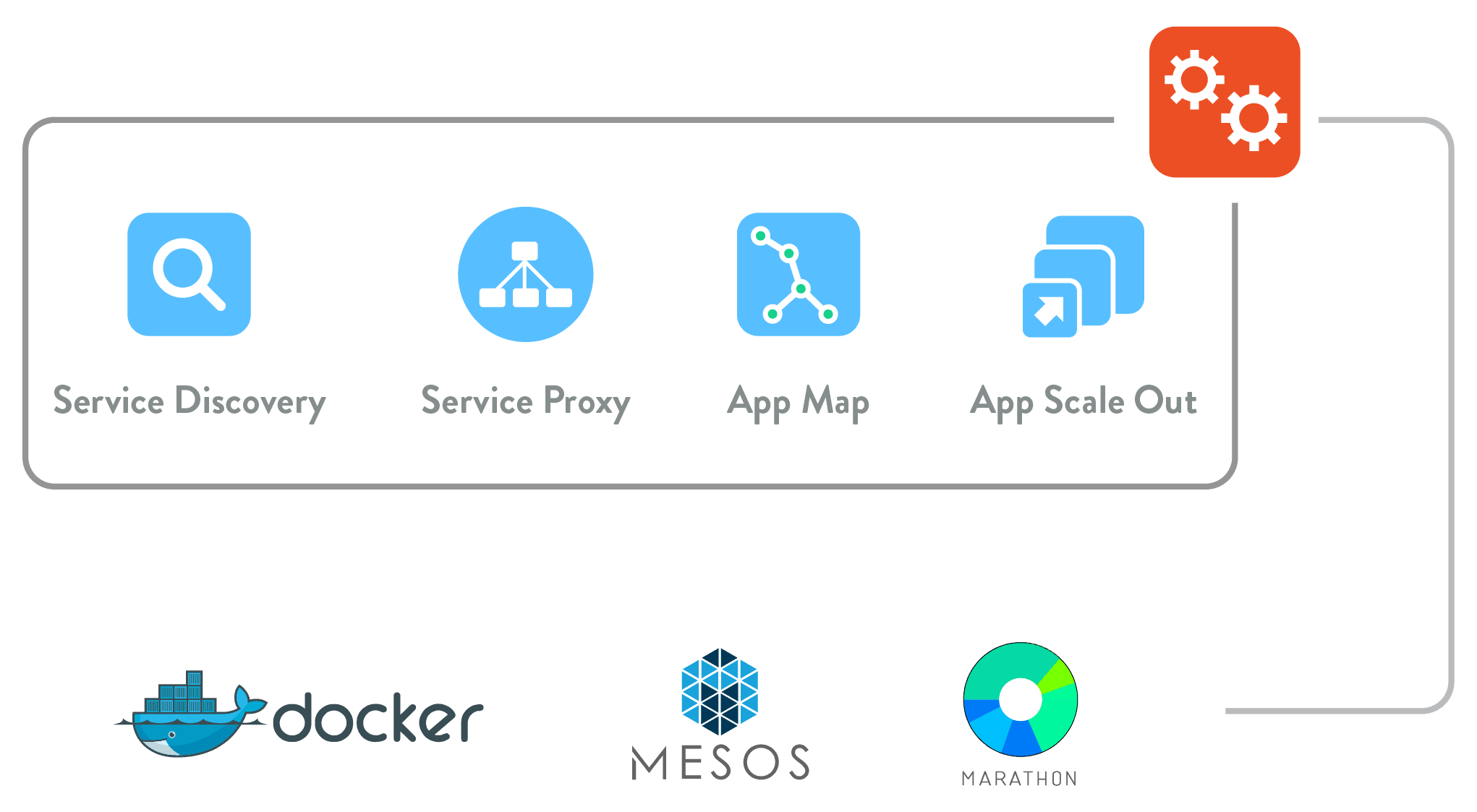Container Services Fabric Definition
A container services fabric is a framework of application services needed to deploy, manage and secure a containerized application based on microservices architecture. Capabilities include load balancing, application performance monitoring, application tracing, autoscaling, micro‑segmentation, service proxy and service discovery.

What are Containers?
Containers break monolithic applications into pieces running as containers that can be spun up or down very quickly thousands of times.
Containers are a lightweight, efficient and standard way for applications to move between environments and run independently. Everything needed to run the application is packaged inside the container: code, run time, system tools, libraries and settings.
Containers virtualize the operating system while virtual machines virtualize hardware. This make containers more portable and efficient.
What are the Benefits of Using Application Containers?
The benefits of application containers include lightweight portability, higher server efficiencies and security. Other benefits include:
• Space saver — Containers take up less compute and storage resources than virtual machines.
• Operational efficiency — Containers have fast boot times because each container is only a process in the operating system with few dependencies.
• Developer productivity – Containers can be used for continuous integration and continuous deployment (CI/CD), by setting up the build process to pull code from a repository, build it, package it and push it, to test the application and deploy it to production servers. Typical models include blue/green and canary deployment.
How does Container Services Fabric Work?
Container services fabric works by providing application services within a container acting as the application host. It provides vital networking and application services to these containerized applications. The service fabric ensures applications are highly available and are running efficiently. The service fabric logs can be used to diagnose and troubleshoot problems.
Service Fabric is a distributed systems platform for packaging, deploying, and managing distributed applications and containers at large scale.
Service Fabric provides container capabilities that help build applications composed of containerized microservices. The most common use-case of service fabric for containers packages an existing application, written using any language or framework, inside a container.
Does VMware NSX Advanced Load Balancer Offer Container Services Fabric?
Yes, the VMware NSX Advanced Load Balancer offers container services fabric, also called an ingress gateway for containers. An ingress gateway for containers provides monitoring, scalability, and high availability services through APIs. This flexible framework removes the operational complexity associated with modern applications. The advent of cloud-native applications and containers creates a need for a container ingress to deliver vital application services, including load balancing.
For more on the actual implementation of load balancing, security applications and web application firewalls check out our Application Delivery How-To Videos.
For more information on container services fabric see the following resources: